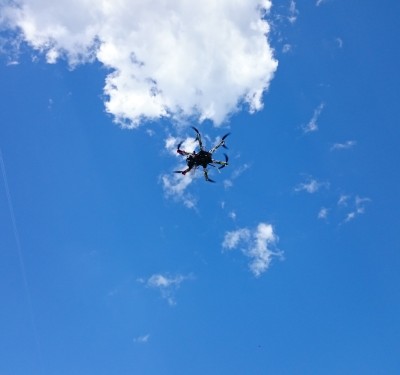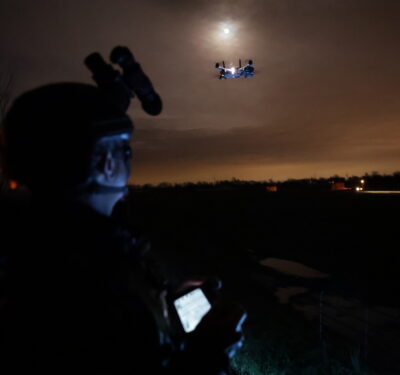
Wikimedia Commons photo by Lionel Allorge.
House and Senate negotiators unveiled some of the details of their final deal on the National Defense Authorization Act (NDAA) including a provision restoring a registration requirement for recreational unmanned aerial systems (UAS).
The fine print was contained in a 2,400-page conference report released November 10 to accompany the NDAA (HR 2810). The final language on the bill itself could be released as early as this week. With the House and Senate conferees having reached agreement, the bill is expected to be signed into law.
The big news was met with praise from key organizations, including the Small UAV Coalition, which applauded Congress for restoring Federal Aviation Administration (FAA) authority to maintain a national UAS registry that includes model drones. The Academy of Model Aeronautics (AMA), was a bit less sanguine.
“We have long held that federal registration of unmanned aircraft systems (UAS) makes sense at an appropriate threshold of weight, capability and other safety-related characteristics. However, we believe the existing thresholds should continue to be refined through rulemaking, as the FAA has yet to issue a final rule in this matter,” said Chad Budreau, government affairs and public relations director for AMA, in a statement sent to Inside Unmanned Systems.
In a post on their government relations blog, the AMA asked all its members to comply with the registration rule once it was in effect again.
“We continue to work closely with Congress, the FAA and other stakeholders to determine the best path forward now that UAS registration will be reinstituted,” the post said. “This process will take time but, as always, we are doing everything we can to advocate for our members and protect the model aircraft hobby.”
In restoring the drone regulations, the conference report states that the “rules adopted by the Administrator of the Federal Aviation Administration in the matter of registration and marking requirements for small unmanned aircraft (FAA-2015-7396; published on December 16, 2015) that were vacated by the United States Court of Appeals for the District of Columbia Circuit in Taylor v. Huerta (No. 15-1495; decided on May 19, 2017) shall be restored to effect on the date of enactment of this Act.”
The registration requirement was initially imposed in late 2015 after a number of safety incidents involving drones, but several operators objected to what they saw as an intrusion into their right to fly and seized on language in a 2012 law that said drone hobbyists were exempt from regulation by the FAA. The U.S. Court of Appeals overturned the FAA registration for model drones in May.
The Association for Unmanned Vehicle Systems International (AUSVI) issued a statement praising Congress for reinstating the broader UAS registration.
“AUVSI has long supported a registration system for commercial and recreational UAS operators. We are glad Congress has embraced this policy,” said Brian Wynne, president and CEO of AUVSI. “A UAS registration system promotes responsibility by all users of the national airspace. It also helps create a culture of safety that deters careless and reckless behavior. We look forward to continue working with Congress and the FAA on solutions that will ensure accountability across the entire aviation community, both manned and unmanned.”






